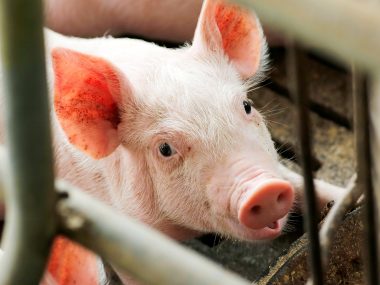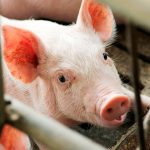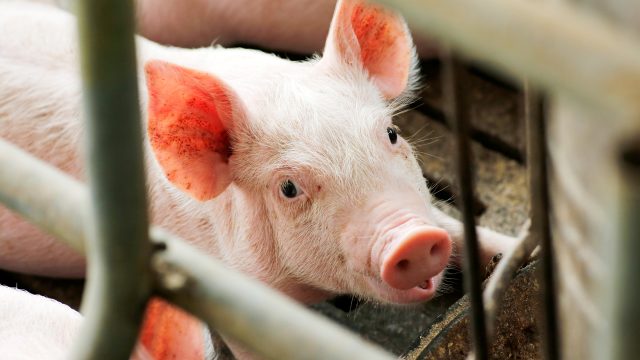
Holding Slaughterhouses Accountable for Water Pollution
Cape Fear River Watch v. Environmental Protection Agency
The Animal Legal Defense Fund joined a coalition of conservation and community groups in filing a lawsuit against the Environmental Protection Agency for failing to update national standards restricting water pollution from slaughterhouses.
Status
Next Step
Thousands of slaughterhouses across the country rely on outdated pollution-control technology, resulting in contamination of our waterways. After the Environmental Protection Agency (EPA) refused to update national standards regulating pollution from slaughterhouses, a coalition of conservation and community groups sued.
Who is being sued, why, and under what law? The coalition filed the lawsuit under the Clean Water Act against the EPA after the agency failed to revise federal water pollution standards for slaughterhouses that discharge processed wastewater into waterways or facilities that send wastewater to sewage plants before discharging into rivers and streams. These standards were last updated 15 years ago, and more than a third of slaughterhouses operate under guidelines from the 1970s. The Clean Water Act mandates that the EPA set such standards and review them annually to determine whether they comply with the latest in pollution-control technology.
What court is the lawsuit filed in? The United States Court of Appeals for the Fourth Circuit
Why this case is important: Technology that can reduce pollution exists, and the EPA has recognized slaughterhouses are one of the largest industrial sources of nitrogen water pollution without updated standards.
But instead of protecting the environment and public health, the federal government is giving slaughterhouses, which kill more than 8 billion chickens, 100 million pigs, and 30 million cows annually, a free pass by allowing them to operate under ineffective and outdated water pollution standards. These plants discharge contaminants such as blood, oil, grease, and fats, as well as nitrogen and phosphorous pollution. The costs of their pollution are borne largely by communities with lower incomes whose drinking water is jeopardized, as well as neighboring wild animals who depend on clean water to survive.
Sign Up!
Join the Animal Legal Defense Fund's email list to stay up to date on lawsuits, legislation, and regulations affecting animals.
Recent News
-
Hold factory farms accountable for abusing animals
This action is for U.S. residents only -
Lawsuit Filed Against Pig Breeder Holden Farms Related to Feeding Dead Piglets’ Intestines and Feces to Mother Pigs and Other Offenses
Animal Legal Defense Fund filed a false claims lawsuit against Holden Farms. Allegations include violating federal and state laws banning “garbage feeding” and state animal cruelty law.August 10, 2023 Press Release -
$5,000 Reward for Information Regarding Six Killed and Mutilated Cows in Three Texas Counties
Cows were killed in Madison, Brazos, and Robertson Counties, Texas.May 3, 2023 Press Release
Related Cases
-
Challenging Factory Farms’ Exemption from Pollution Reporting Requirements
Rural Empowerment Association for Community Help v. United States Environmental Protection Agency
-
Protecting Pigs from Cruel High-Speed Slaughter
Farm Sanctuary v. U.S. Department of Agriculture
-
Demanding the USDA Regulate the Mass Disposal of Farmed Animals During the COVID-19 Pandemic
Petition to the USDA submitted in June 2020
Looking for case and legal resources? View Resources
See More





